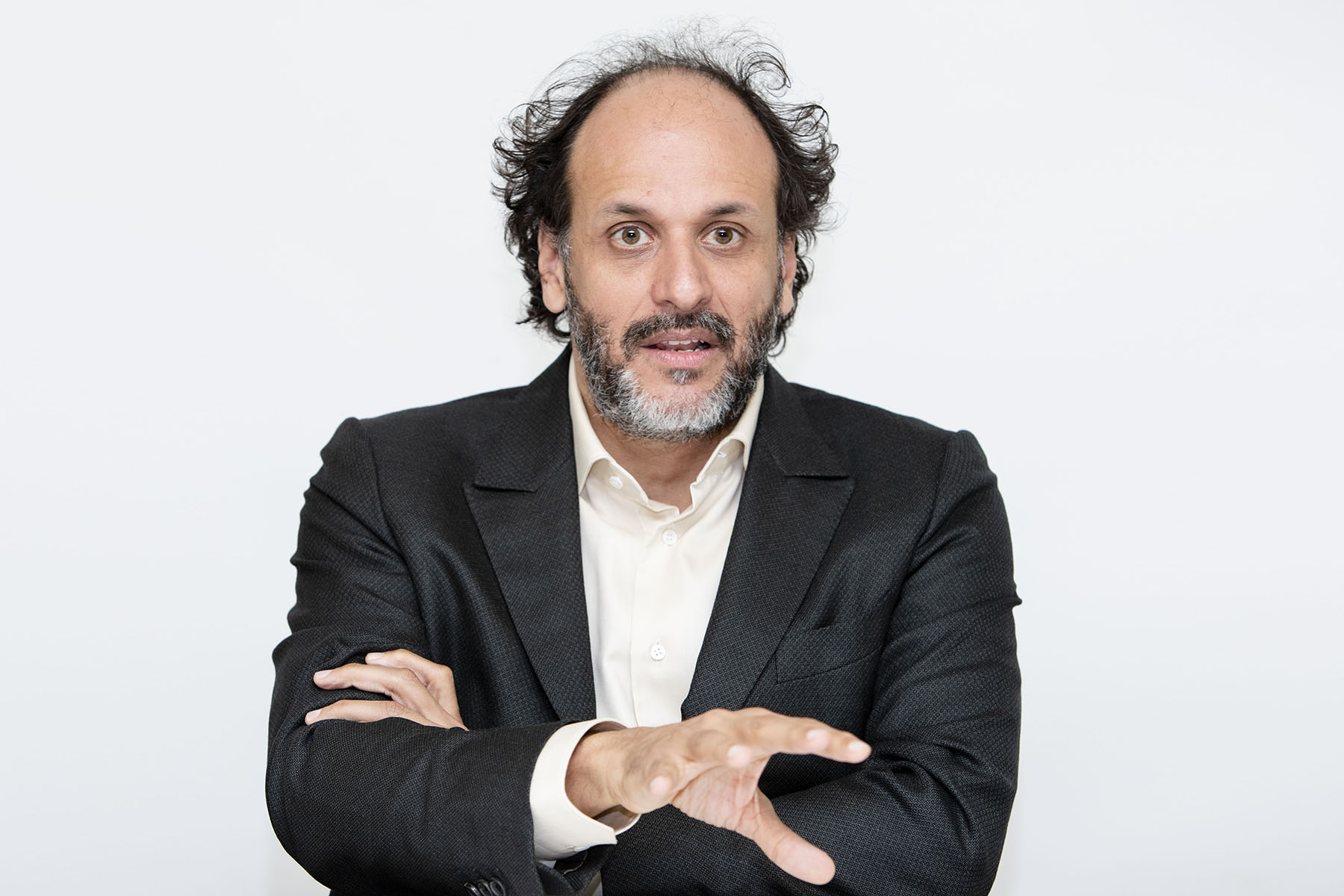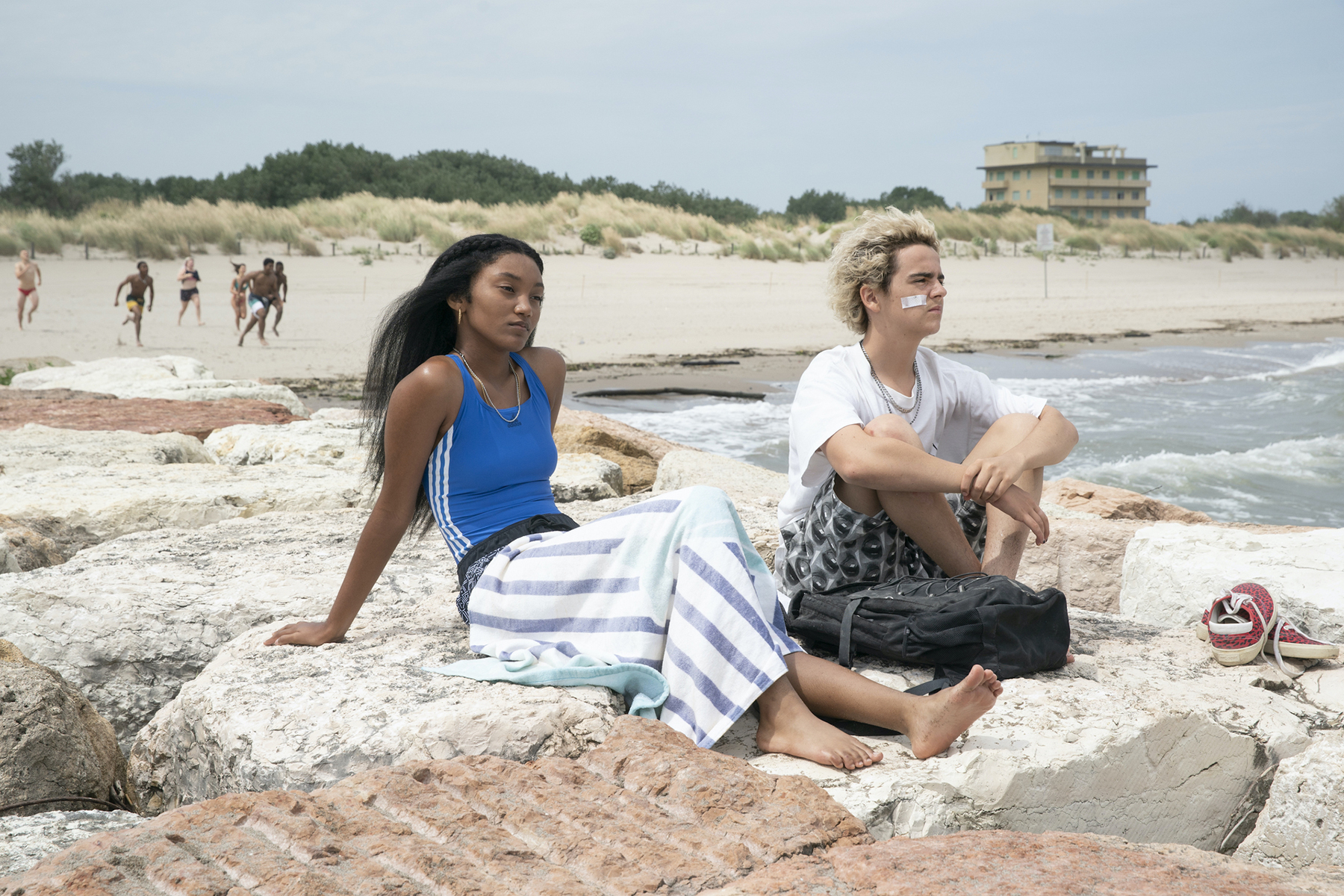
- Interviews
Luca Guadagnino Explains Why ‘We Are Who We Are’
Globe-nominated director Luca Guadagnino comes to the small screen with an 8 episode series titled We Are Who We Are, set in Chioggia, Italy, in 2016 on an American military base. Here he tells the adventures of two teenagers, 14-year-olds Fraser and Caitlin, their families and their friends, Italian and American, white and black. We spoke via Zoom with the Italian director of Call Me by Your Name and I Am Love, both nominated for Golden Globes.

Jordan Kristine Seamon, Jack Dylan Grazer in We Are Who We Are (2020)
HBO
Fraser is considered gay by his new friends, while he attempts to fit in after arriving in Italy from New York. He develops a friendship with Caitlin and helps her to express her masculinity. What themes did you mean to explore with these characters portrayed in the delicate moment of adolescence?
Producer Lorenzo Mieli had proposed to me to reflect on the theme of gender identity and gender fluidity among adolescents, from there a reflection was born on what it means to be children of American soldiers living abroad, adding little by little the elements that then made the series become what it is. They are 14-year-old teenagers who live their confusion and the inevitable transformation of their identity, who process the mourning of the death of their childhood and face the unknowability of what they will be when they become adults and not being yet fixed in anything definitive, they live in a sort of constant turmoil that brings them to imagine a thousand possibilities for themselves.
Call Me by Your Name was a very different story, but Elio is a 17-year old like Fraser is a 14-year-old. In these characters, are there some elements of a teenage Luca Guadagnino, of what you went through in that period of your life?
Perhaps in an unconscious manner, in that probably my feelings about things show through the work that I do. But not in a literal sense, at least not completely. Additionally, the idea that you could constantly ask yourself questions about your own identity, your own desires, about what each of us would like to be and is unable to be, are universal concepts, and therefore clearly part of my imagination and also of my lived life, but at the same time, they are like traces that I recognize through my own life experiences in the life of everyone.
You also introduce to us the kids’ mothers, Sarah (Chloë Sevigny), Captain of the base, her wife Maggie (Alice Braga), a doctor in the Army, Caitlin’s mother Jenni (Faith Alabi), a Nigerian woman married to a Black American. What feelings did you wish to express with these female characters?
Sarah, Maggie, and Jenni are three women who have the desire, the necessity to find a contact with another woman, in the void of their existences, in the distancing of a military base where everyone has to simply recognize their role and execute a series of orders, of routines. While mutually exploring their contacts with each other, these women fail or triumph, however briefly, but they attempt to question themselves in their meeting with the other. And this was of great interest to me. Additionally, the feminine, in my opinion, has an ability to be open and welcoming, which is very different from that of the masculine.
Caitlin is a girl of color, as are her family and many of her young friends. What was your intention by including so many characters of color in your series?
I never approached this as a prior decision, we were simply interested in telling the story of Caitlin and her family. When we began to research who these characters could be, we reflected on the fact that we found interesting the idea of Black African-American identity, confronting an African identity, like that of Jenni, a woman who, in order to experience a sense of belonging wishes to be included in the American identity, she dreams of living in Chicago. But I grew up in Ethiopia, surrounded by multiple forms of identities and ethnicities, so I never pose myself the issue of who I should feature in my films.
You lived in Ethiopia until the age of six, since your father was teaching history and Italian literature in Addis Ababa, the capital of this former Italian colony. What has this experience left in your soul?
I was very little because I was from age zero to six, but I think that this has given me a feeling for the light. You know, when you live in a place that has such open spaces, those contrasts, the rainy seasons, the hot and the cold, the endless skies, all of this frankly I feel is reflected in my feelings of space and things.
In the short Fiori, Fiori, Fiori, you revisited your father’s birthplace, the small town of Canicattì, near Agrigento, Sicily. What did you discover?
During the lockdown, I spent the entire time locked inside my apartment in Milan, a very difficult period of my life, but then, because I am a filmmaker, I had permission from the government to travel with a small crew and shoot a short documentary in Sicily. I visited the village where my father was born and where we would spend our summer vacations, in the family home where my two aunts still lived. It did me good to feel surrounded by this incredible beauty of nature and by the colors of the flowers everywhere, so it was a balm for my soul.
In the series, you show the tragic consequences of sending young soldiers to fight in Afghanistan. What is your opinion of these American wars started by George Bush that continues to this day?
The American wars, especially the first and second wars of the Gulf, have been catastrophic, terrifying wars. It’s clear that we still pay the consequences of those wars today and we will pay then for many decades to come, through many feelings of hostility from a certain kind of culture and world towards the West. This is because the Bush wars produced a feeling of antagonism, of us against them, that obviously has fermented and has then created the conditions for what has happened with various terrorist attacks that Europeans have lived on their own skin for many years now.
Read Luca Guadagnino spiega perché We Are Who We Are by Elisa Leonelli.

